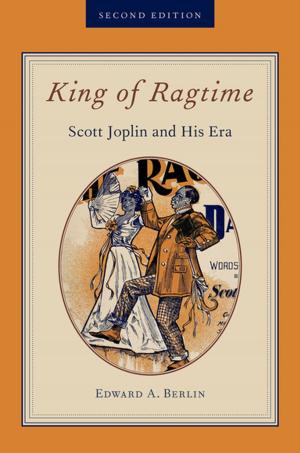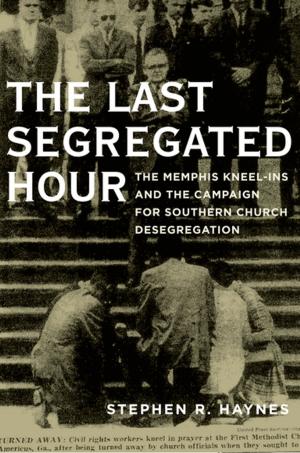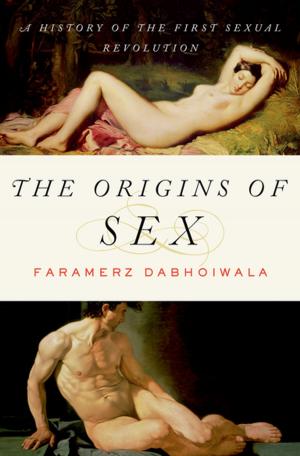"To Everything There is a Season"
Pete Seeger and the Power of Song
Nonfiction, Entertainment, Music, Theory & Criticism, Ethnomusicology, Music Styles, Folk & Traditional, History, Americas, United States, 20th Century| Author: | Allan M. Winkler | ISBN: | 9780199886661 |
| Publisher: | Oxford University Press | Publication: | May 21, 2009 |
| Imprint: | Oxford University Press | Language: | English |
| Author: | Allan M. Winkler |
| ISBN: | 9780199886661 |
| Publisher: | Oxford University Press |
| Publication: | May 21, 2009 |
| Imprint: | Oxford University Press |
| Language: | English |
Author or coauthor of such legendary songs as "If I Had a Hammer," "Where Have All the Flowers Gone?" and "Turn, Turn, Turn," Pete Seeger is the most influential folk singer in the history of the United States. In "To Everything There Is a Season": Pete Seeger and the Power of Song, Allan Winkler describes how Seeger applied his musical talents to improve conditions for less fortunate people everywhere. This book uses Seeger's long life and wonderful songs to reflect on the important role folk music played in various protest movements of the twentieth century. A tireless supporter of union organization in the 1930s and 1940s, Seeger joined the Communist Party, performing his songs with banjo and guitar accompaniment to promote worker solidarity. In the 1950s, he found himself under attack during the Red Scare for his radical past. In the 1960s, he became the minstrel of the civil rights movement, focusing its energy with songs that inspired protestors and challenged the nation's patterns of racial discrimination. Toward the end of the decade, he turned his musical talents to resisting the war in Vietnam, and again drew fire from those who attacked his dissent as treason. Finally, in the 1970s, he lent his voice to the growing environmental movement by leading the drive to clean up the Hudson River. The book seeks to answer such fundamental questions as: What was the source of Seeger's appeal? How did he capture the attention and affection of people around the world? And why is song such a powerful medium? Richly researched and crisply written, "To Everything There Is a Season": Pete Seeger and the Power of Song is an ideal supplement for U.S. history survey courses, as well as twentieth-century U.S. history and history of American folk music courses. To purchase Pete Seeger songs discussed in the text, visit the following link for an iTunes playlist compiled by Oxford University Press: (http://itunes.apple.com/WebObjects/MZStore.woa/wa/viewIMix? id=375976891)
Author or coauthor of such legendary songs as "If I Had a Hammer," "Where Have All the Flowers Gone?" and "Turn, Turn, Turn," Pete Seeger is the most influential folk singer in the history of the United States. In "To Everything There Is a Season": Pete Seeger and the Power of Song, Allan Winkler describes how Seeger applied his musical talents to improve conditions for less fortunate people everywhere. This book uses Seeger's long life and wonderful songs to reflect on the important role folk music played in various protest movements of the twentieth century. A tireless supporter of union organization in the 1930s and 1940s, Seeger joined the Communist Party, performing his songs with banjo and guitar accompaniment to promote worker solidarity. In the 1950s, he found himself under attack during the Red Scare for his radical past. In the 1960s, he became the minstrel of the civil rights movement, focusing its energy with songs that inspired protestors and challenged the nation's patterns of racial discrimination. Toward the end of the decade, he turned his musical talents to resisting the war in Vietnam, and again drew fire from those who attacked his dissent as treason. Finally, in the 1970s, he lent his voice to the growing environmental movement by leading the drive to clean up the Hudson River. The book seeks to answer such fundamental questions as: What was the source of Seeger's appeal? How did he capture the attention and affection of people around the world? And why is song such a powerful medium? Richly researched and crisply written, "To Everything There Is a Season": Pete Seeger and the Power of Song is an ideal supplement for U.S. history survey courses, as well as twentieth-century U.S. history and history of American folk music courses. To purchase Pete Seeger songs discussed in the text, visit the following link for an iTunes playlist compiled by Oxford University Press: (http://itunes.apple.com/WebObjects/MZStore.woa/wa/viewIMix? id=375976891)















